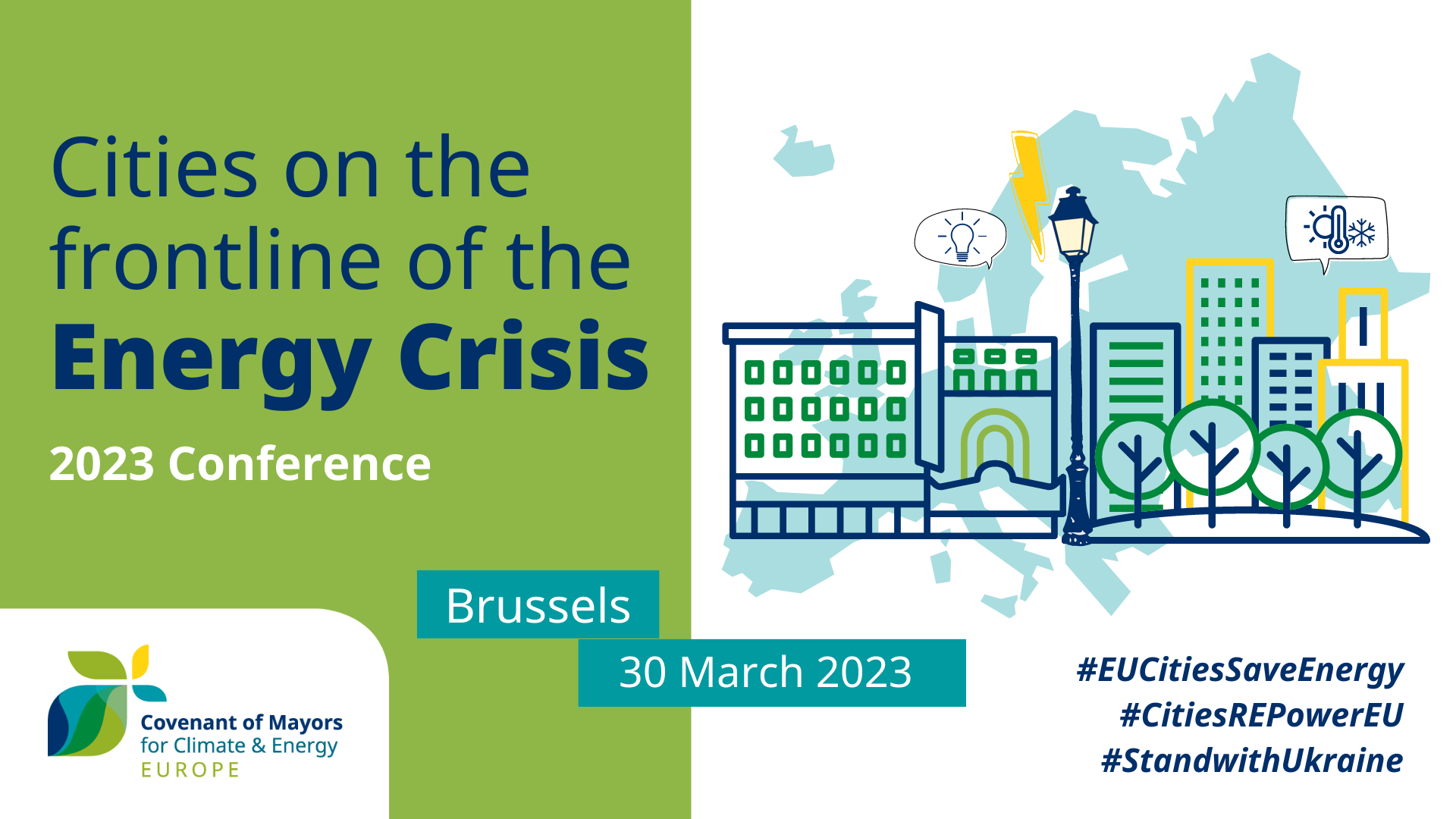This year’s Covenant of Mayors – Europe conference in Brussels will focus on the local response to the energy crisis, discussing how it has shown (once again) that cities are frontrunners of Europe’s energy transition, and how these efforts can become long-term strategies to redefine lifestyles in the face of climate change.
- -
Practical information
- When
- -
Kirjeldus

The ongoing energy crisis, caused by Russia’s aggression against Ukraine, directly hits cities, people and local business across Europe. The heaviest burden is falling on European households suffering from increased energy poverty, as well as on owners of small and medium enterprises, affected by inflation and high energy prices, soaring since early 2021 and further aggravated by the war. However, out of economic necessity, the crisis is also having an impact on our lifestyle behaviours, shifting us away from over-consumption behaviours to steer individual and collective actions towards practices that also fight against climate change.
Yet again on the frontline of the energy crisis, local authorities have showed readiness to respond. On top of delivering ambitious local climate solutions, they put in place immediate low-cost actions to reduce energy demand in public facilities and increased the share of renewables while supporting the most vulnerable households and local business.
Some of these examples were reflected in the Cities Energy Saving Sprint, a joint campaign launched by the Covenant of Mayors Europe, the European Commission and the Committee of the Regions in response to Russia’s aggression against Ukraine. Addressing the common challenge, the campaign has had the double aim of encouraging local governments to immediately reduce energy consumption ahead of the winter season, while showing solidarity with Ukraine by cutting down Europe’s dependency on Russian gas, in line with the REPowerEU Plan's overarching objectives.
Efforts to fill up Europe’s gas storage reserves in 2022 have been largely successful. However, forecasts for upcoming winter seasons are unclear. Therefore, today’s emergency actions should be enshrined into social norms to redirect our crisis responses into permanent structural consumer behaviours. Municipalities each manage a large portfolio of building stock (both public and commercial), and have competences in urban planning, built infrastructure, public lighting and transport. Being the closest level of government to citizens, they are well placed to enable behavioural changes and to rationalise energy consumption such as for household financial savings, while reducing costs in their territories.
Drawing from examples of measures tackling the energy crisis while protecting residents in their territories, this high-level event will be an opportunity to showcase what the current local response to the energy crisis is. It will also be the chance to reflect on what support European institutions and national governments can give to further strengthen these efforts in the mid-term.
Local governments can expect to exchange with high-level representatives from European Institutions, - including Executive Vice-President Frans Timmermans and EU Commissioner for Energy Kadri Simson- the European Parliament and the Committee of the Regions. They will discuss how EU institutions and national authorities can further support local and regional efforts to reduce energy consumption and dependency on Russian gas in the years to come.

